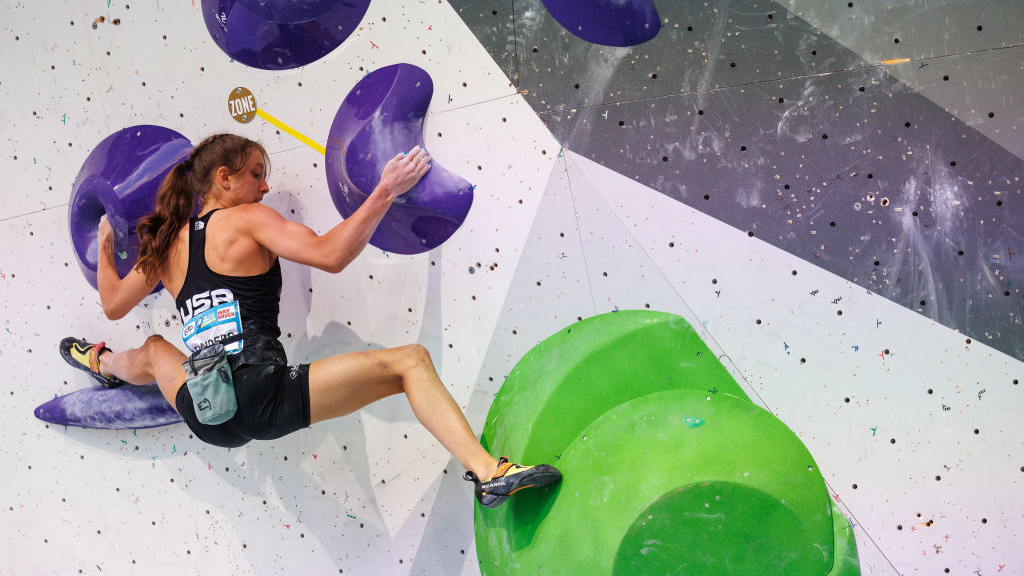The best trail running sunglasses: clarity and protection
We've bounded out in the best trail running sunglasses to find the shades that provide comfort, a clarity and, above all, protection
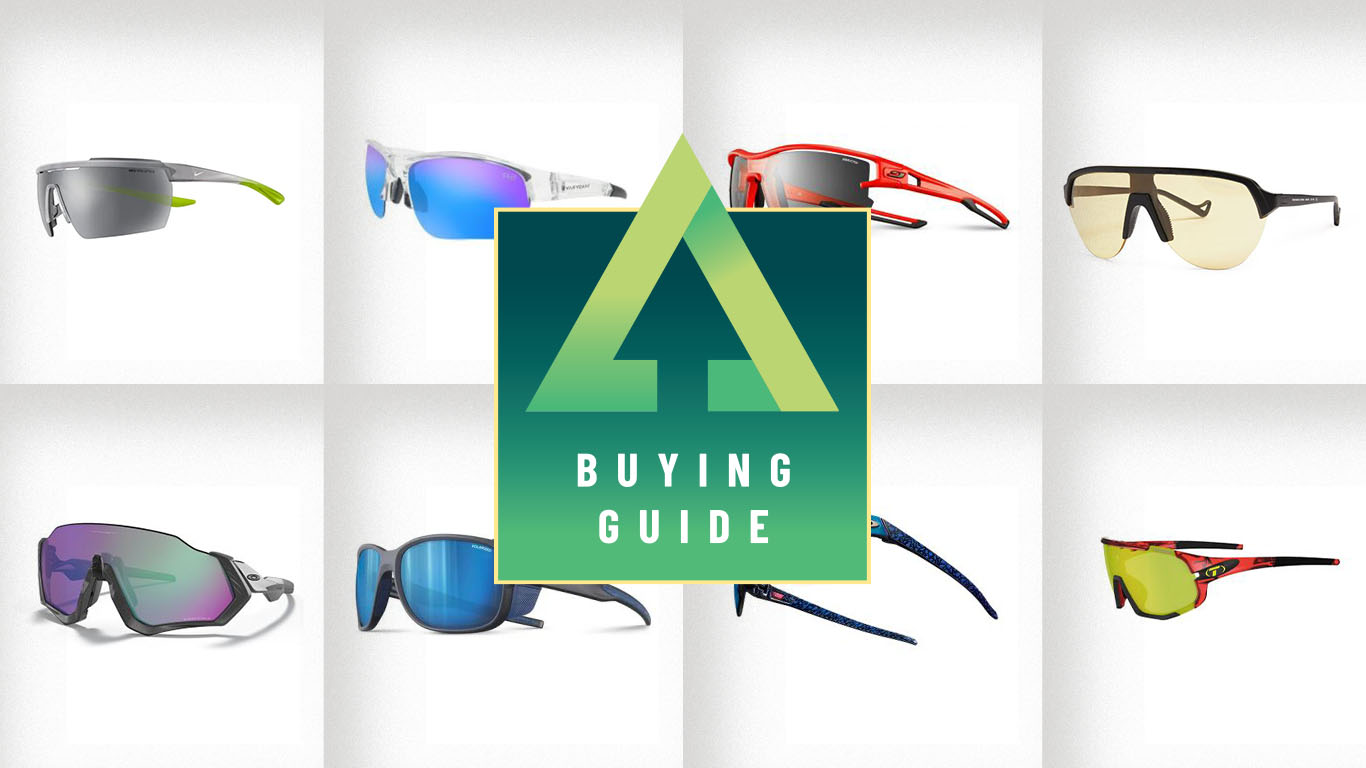
- Quick list
- Best overall
- Best for color contrast
- Best for versatility
- Most understated
- Best for moisture management
- Best for aftercare
- Best for urban aesthetic
- Best for aesthetics
- Best photochromatic option
- Best for close-to-the-face design
- Best for large face profiles
- Comparison table
- How we test
- How to choose
The best trail running sunglasses are an essential piece of kit, whatever the season. As we lace up our trail running shoes and hit the hills, coast paths and mountains in spring, we obviously require protection against the sun.
That's not to say you don't need protection from UV in the winter of course. However, in spring and summer, the sun's UV becomes more intense due to the tilt of the Earth towards our parent star. The need to protect our eyelids, lenses, corneas and retinas from this damaging light becomes more and more important.
The best trail running sunglasses are designed with exertion in mind, with features that help them ventilate and stay secure as we bound along. It's these features that set the best trail running sunglasses apart from everyday pairs.
Our testers have been hitting the mountain trails in the 11 pairs featured here to bring you this guide. Team them with a pair of the most comfortable trail running shoes and you're in for a smooth sprint.
The quick list
This is the quick list, a snapshot of the best trail running sunglasses available in 2025. To delve deeper into the features and qualities of each featured pair, see our more detailed reviews further down the page in this guide.
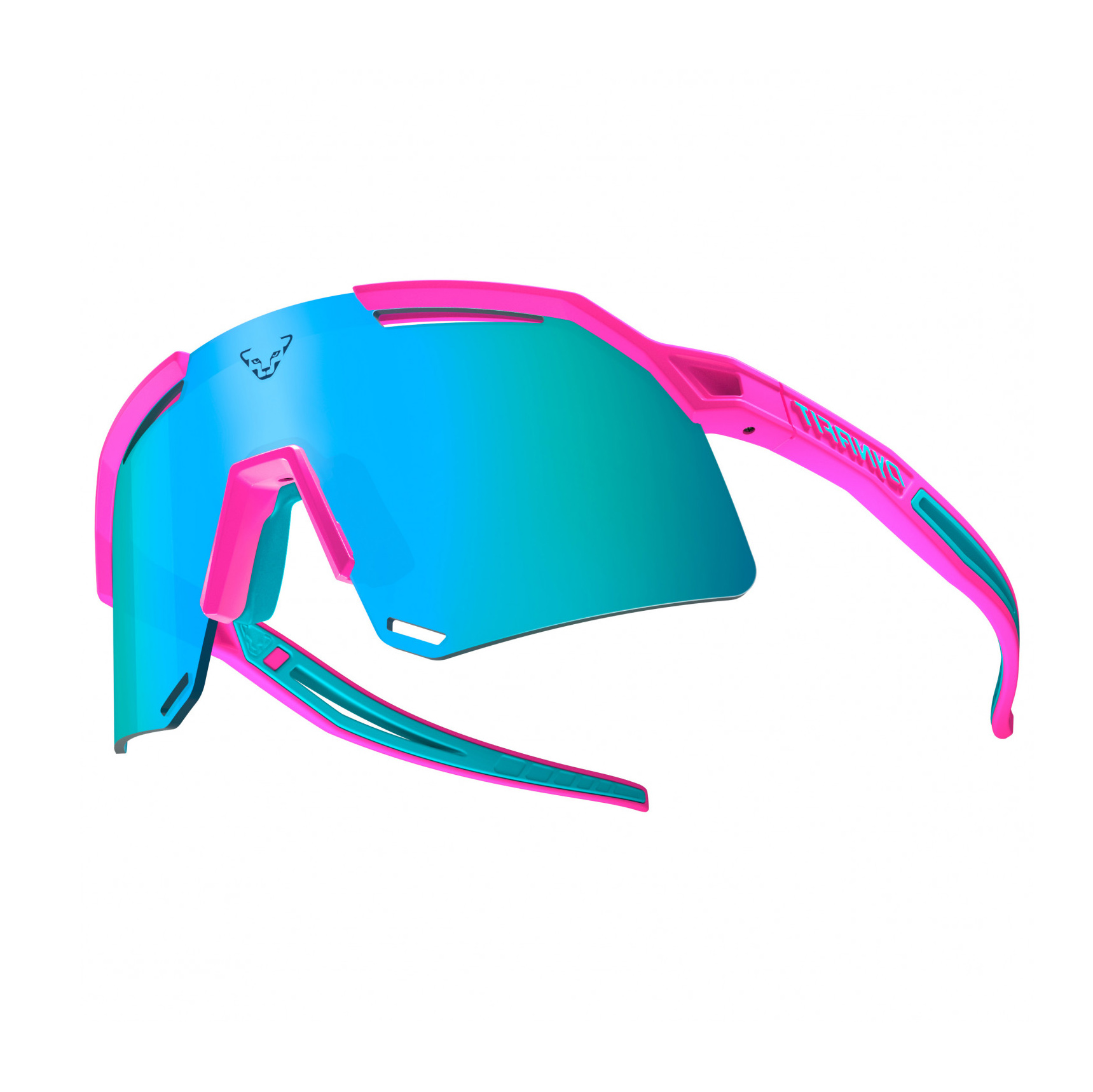
We love these ultra lightweight wrap-around sunglasses with protective high-contrast visor-style lenses, for runners comfortable with a bold look
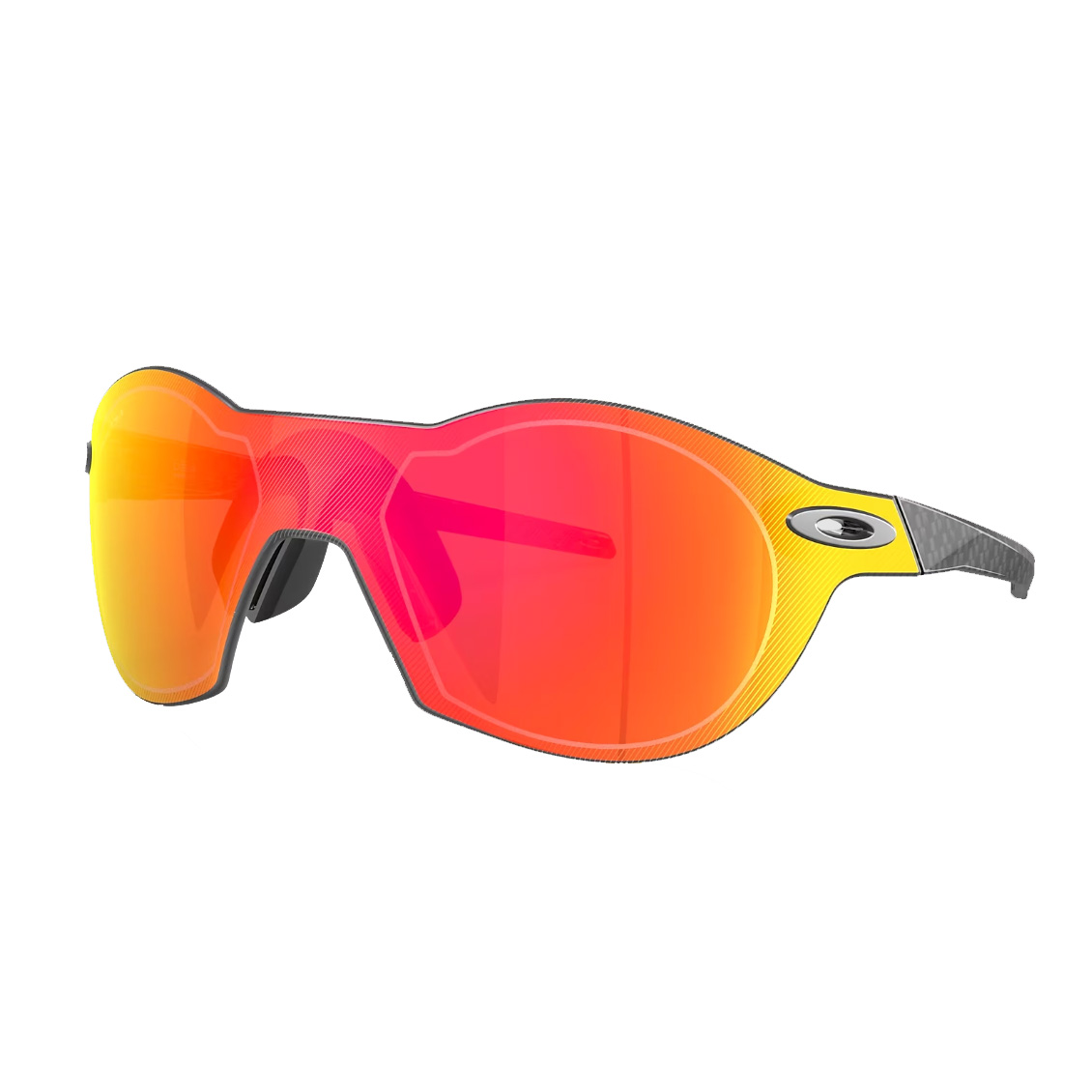
Super lightweight, high-performance sunglasses for running, riding and other active pursuits, we like the lightweight qualities of the Re:SubZeros
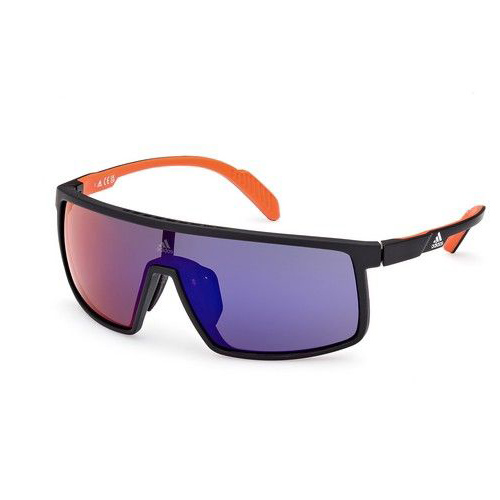
A fashion-forward style and technology combine here to produce what we think might just be the ultimate sport sunglasses
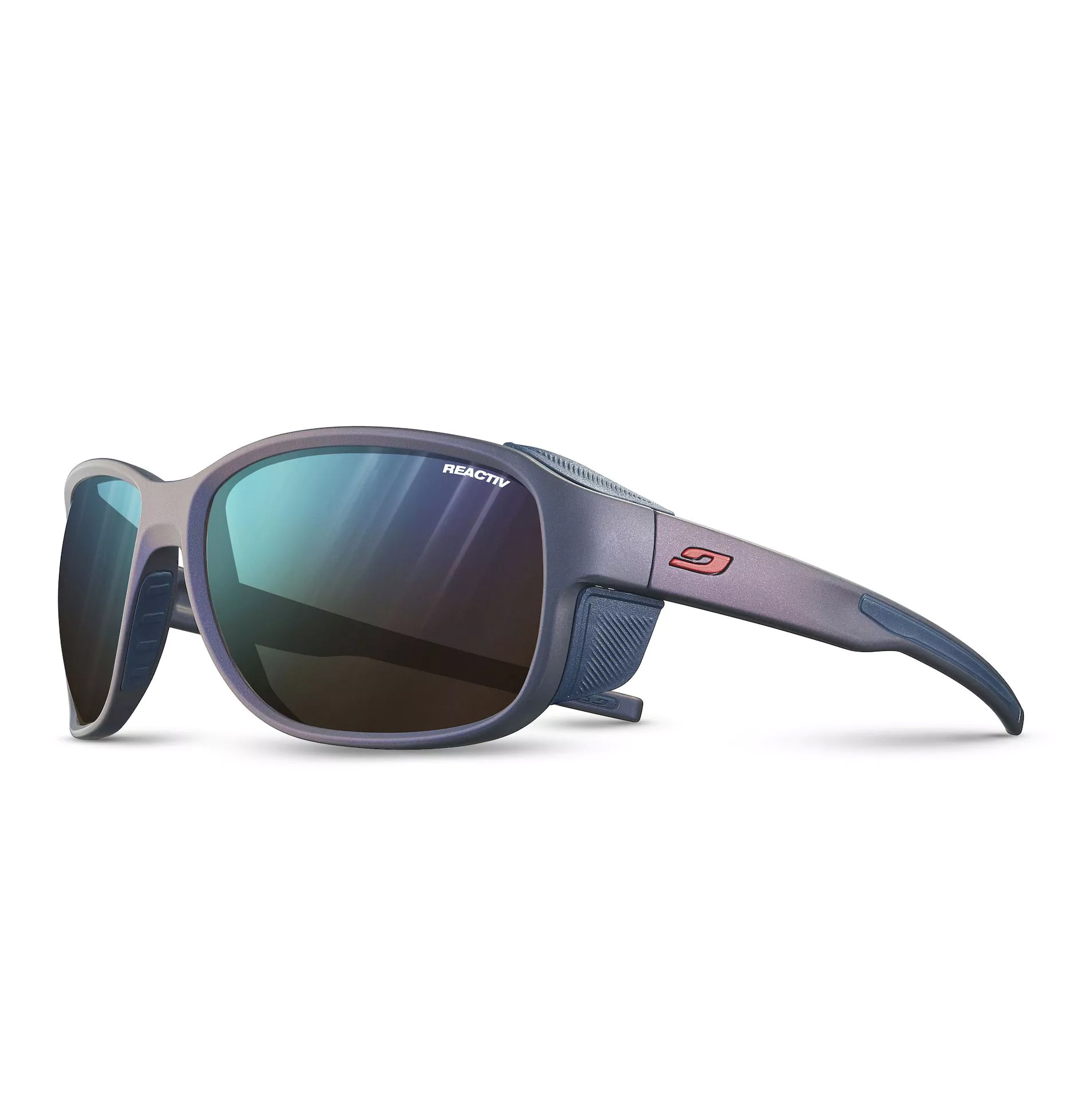
We highly rate these comfortable, versatile shades, which are ideal for running, fastpacking and hiking thanks to their lightweight qualities
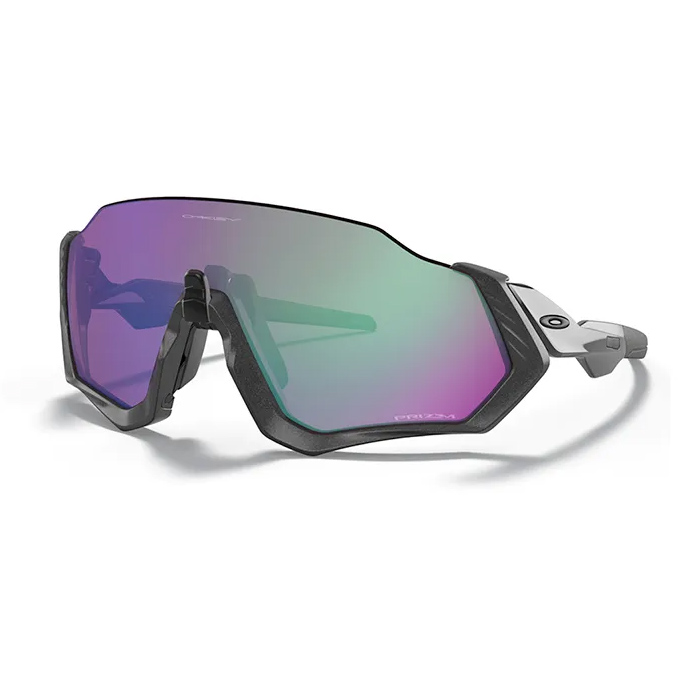
The best trail running sunglasses for moisture management
A style-forward design, exceptional lenses and great air and moisture management mean that we think these shades are worthy of a higher price tag
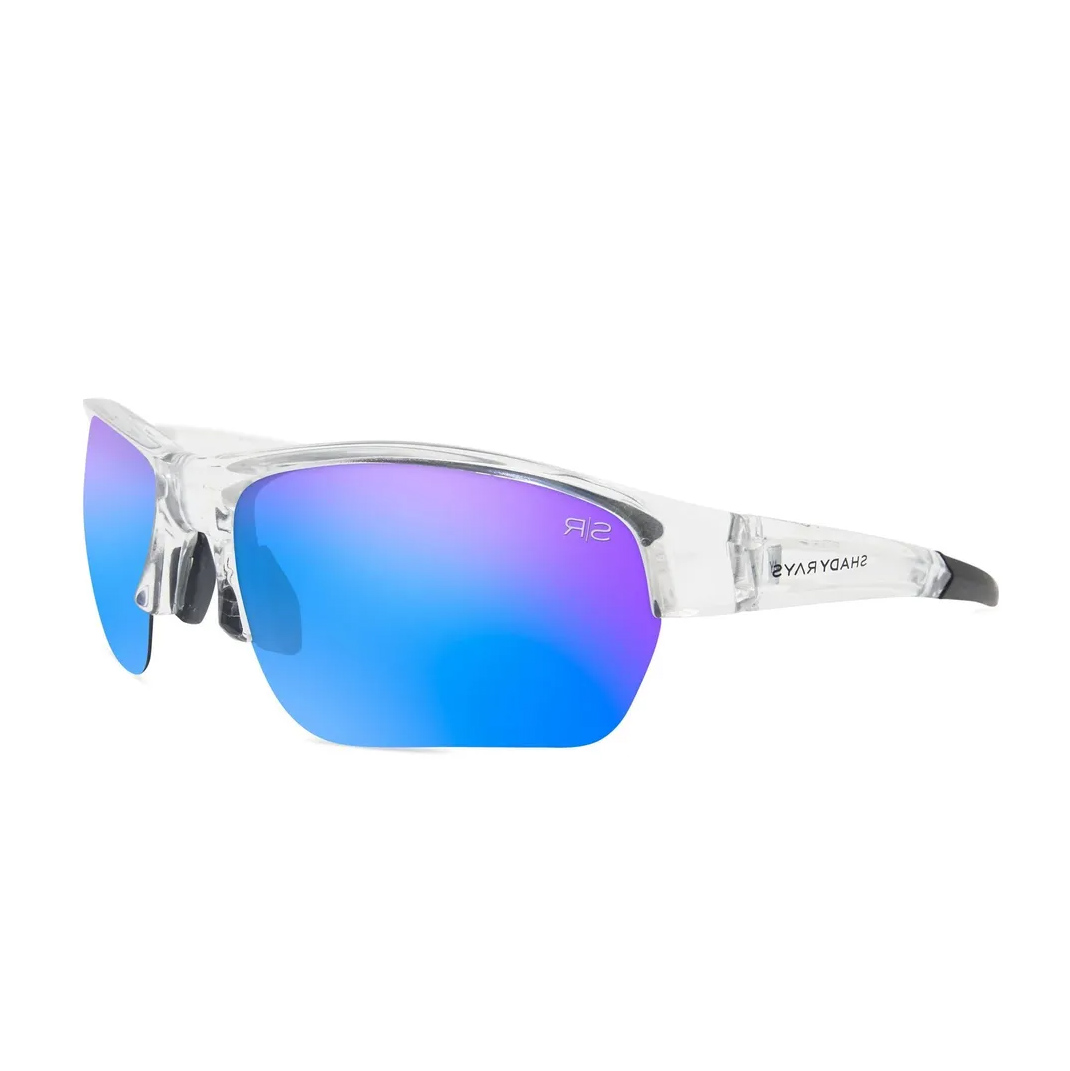
We think these wrap-style, half-frame glasses are ideal for trail running and fast-packing thanks to their premium polarized lenses and replacement guarantee
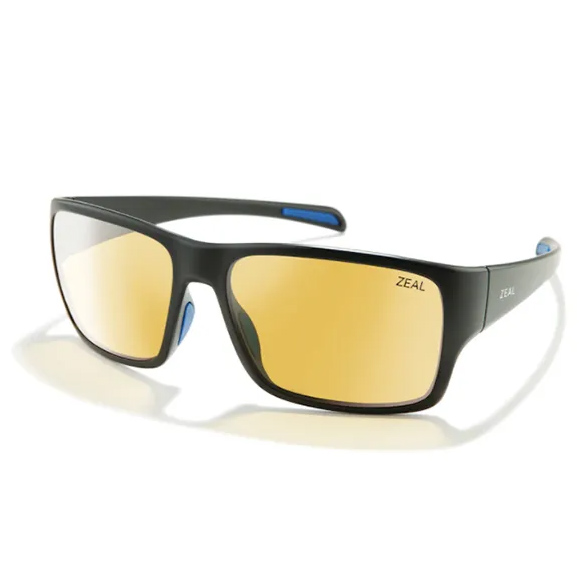
The Manitou are high-performance adventure shades with urban style, highly advanced lenses and exceptional optics – we approve!
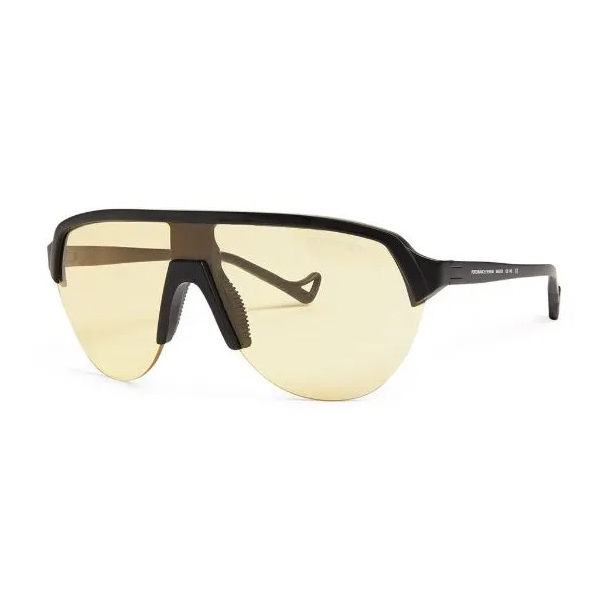
With their superior lens and field of vision, we think these are sunglasses that serve up exceptional functionality, performance and looks
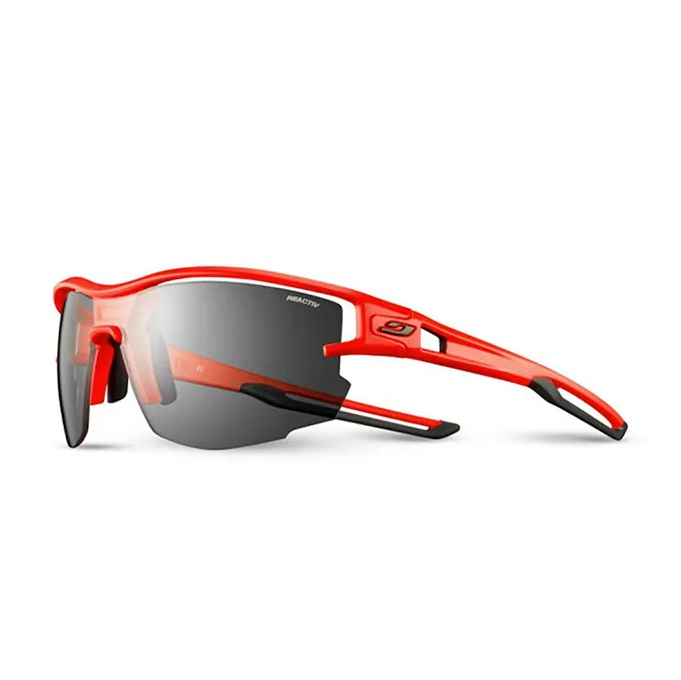
The best photochromatic trail running sunglasses
Featherweight sunglasses with great ventilation and field of vision, with fully adjustable nose pads that allows us to find the optimum fit
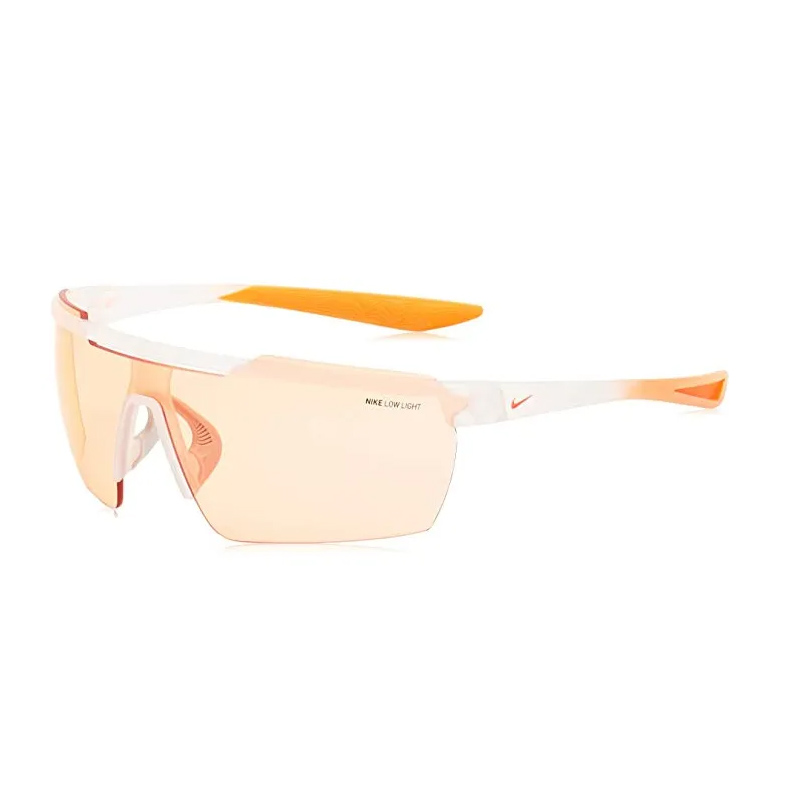
Sleek wraparound-style sunglasses with a wide, one-piece lens, we reckon the Nike Windshield Elite allow full-throttle performance
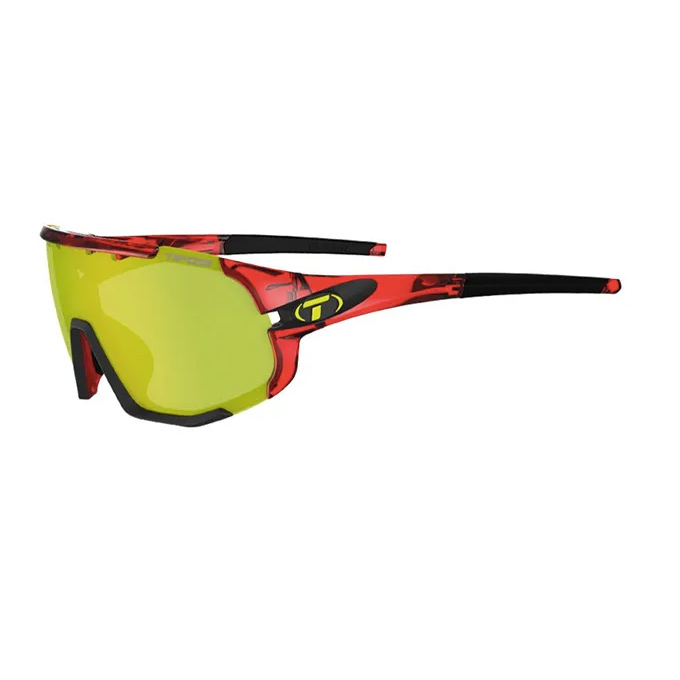
A pair of shades with oversized styling and a performance orientated fit that we think boasts some smart details and features
The best trail running sunglasses 2025
You can trust Advnture
The best trail running sunglasses overall
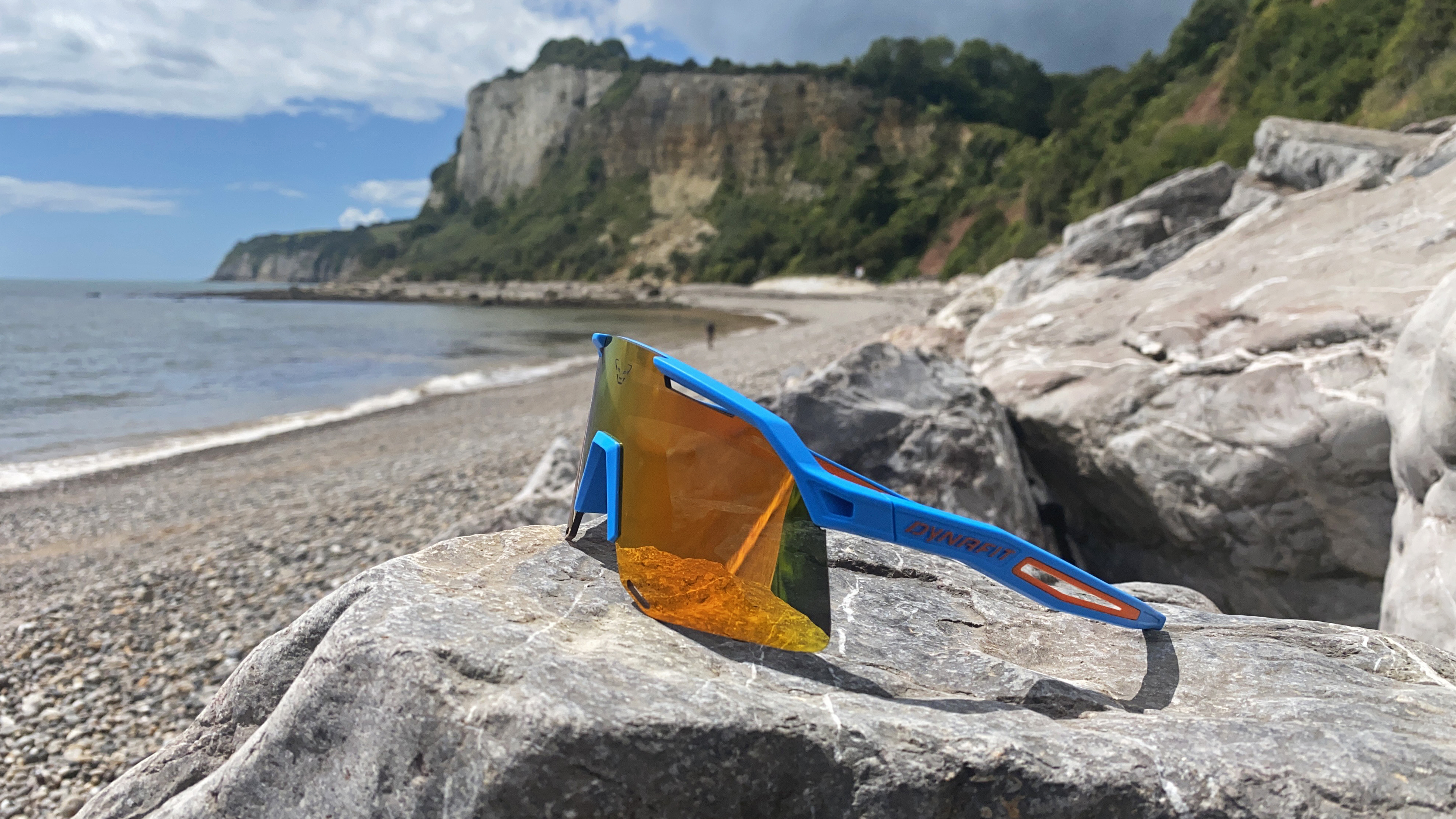
Specifications
Reasons to buy
Reasons to avoid
If you can pull these glasses off, they’re an excellent, ultralight tool to protect your peepers from flying insects, grit, mud and everything else the trail may well throw out you out there. But that is quite the ‘if’. Because these sunnies are "brash and bold" according to our expert tester, and you need to have something about you to style them out. Those who don’t naturally have this hard-to-define ‘something’, will spend quite a bit of time feeling very self-conscious whenever there are other people around.
But, on remote trails and quiet coastal tracks, even we have to admit that – while the style is a bit out-there – the Ultra Evo are excellent running glasses. They’re fantastically light, and the minimalist, top-only frame is completely invisible when they’re on your face. There are vents at the top and bottom of the excellent lenses, which allow air in and prevent fogging. The lenses themselves supply superb high contrast, so you can see every bump and trip hazard on the trail. And the frames are very grippy, keeping the sunnies firmly in place, without being uncomfortable. They come with a big zip-shut rigid case to keep them safe, and a little pouch made from a material you can use to clean the lenses.
Read our full Dynafit Ultra Evo sunglasses review
The best trail running sunglasses for color contrast
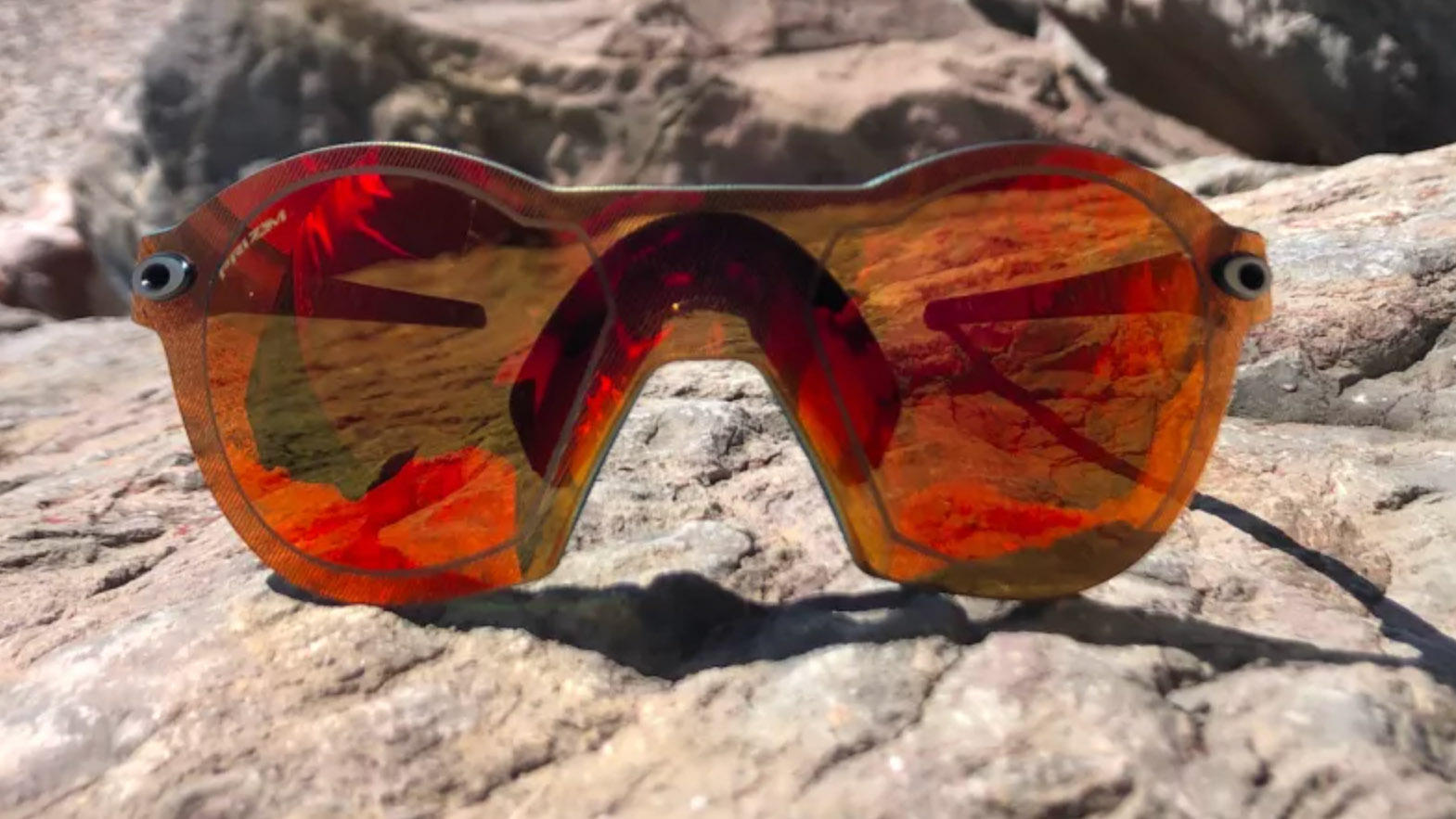
Specifications
Reasons to buy
Reasons to avoid
Oakley has just re-released its SubZero shades – a classic design, which was originally launched in 1992 and, despite being discontinued three years later, became iconic among runners. The big boast of these glasses was that they weigh under 1oz – which isn’t less than zero, of course, but let’s not split hairs, because it is very, very light, and was especially so back in the early 90s.
On test, we found that the grip is excellent at the temples and nose, and we were able to shake our heads around or look down as much as we liked without fear of them falling off. The ‘no-slip’ Unobtainium nose grip is pretty chunky, however, and while you might not feel that it’s there, you can see that it’s there, which some people might find a little distracting. Oakley’s Prism lenses are superb, coping well with changing light levels and providing amazing definition and color contrast, as well as complete protection from the harmful effects of the sun’s rays.
They're statement sunglasses – there’s no getting away from that, from the prominent (and cleverly design integrated) logo to the overall chic. In terms of performance, though, our reviewer says that "these are fantastic trail running sunglasses for taking on any active pursuits."
Read our full Oakley Re:SubZero trail running sunglasses review
The best trail running sunglasses for versatility
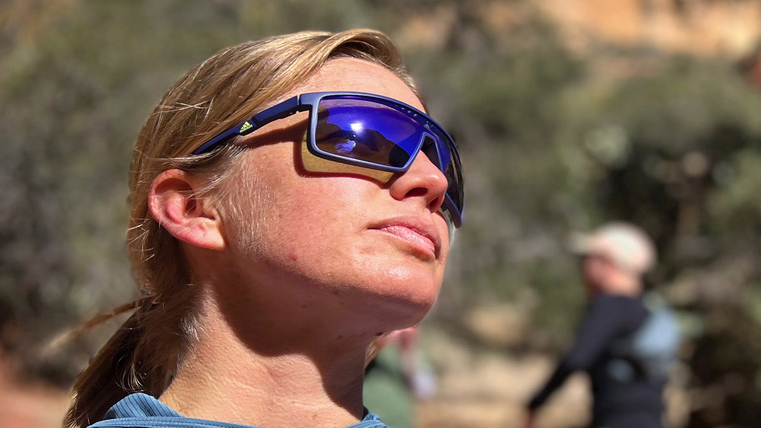
Specifications
Reasons to buy
Reasons to avoid
"It’s hard to find a pair of sport sunglasses that seem to do it all" says our expert tester. Yet in the adidas SP0057, she may have found just to pair. Whether you want to run, bike, ski tour or simply seem stylish, these check all the boxes. This is especially so with the style known as 02L, which are photochromatic, with lenses that adjust to variations in light conditions.
Marcolin, an international eyewear company founded in Italy, was specifically chosen by Adidas to design and be the officially licensee of Adidas eyewear because of their ability to access premium materials. And this quality is very apparent in all the Adidas eyewear we have tested. A frame material from Marcolin, known as TR90, is ultra-lightweight and flexible. On test, during a morning trail run in Sedona, we found the lightweight frame stayed put, with no bounce. The adjustable nose pads and flexible temples with rubber on the interior make for personalized comfort and a grip that doesn’t give way. The aeration system of the SP0057 sits right above the nose near the center of the brow line with nine holes to prevent fogging.
Switching to the adidas SP0057 sport sunglasses with the 92Z style mirrored lenses for mountain biking, we found them perfect for shielding the bright sun and staying put as we bounced and rolled over red rocks.
Read our full adidas SP0057 Sport Sunglasses review
The most understated trail running sunglasses
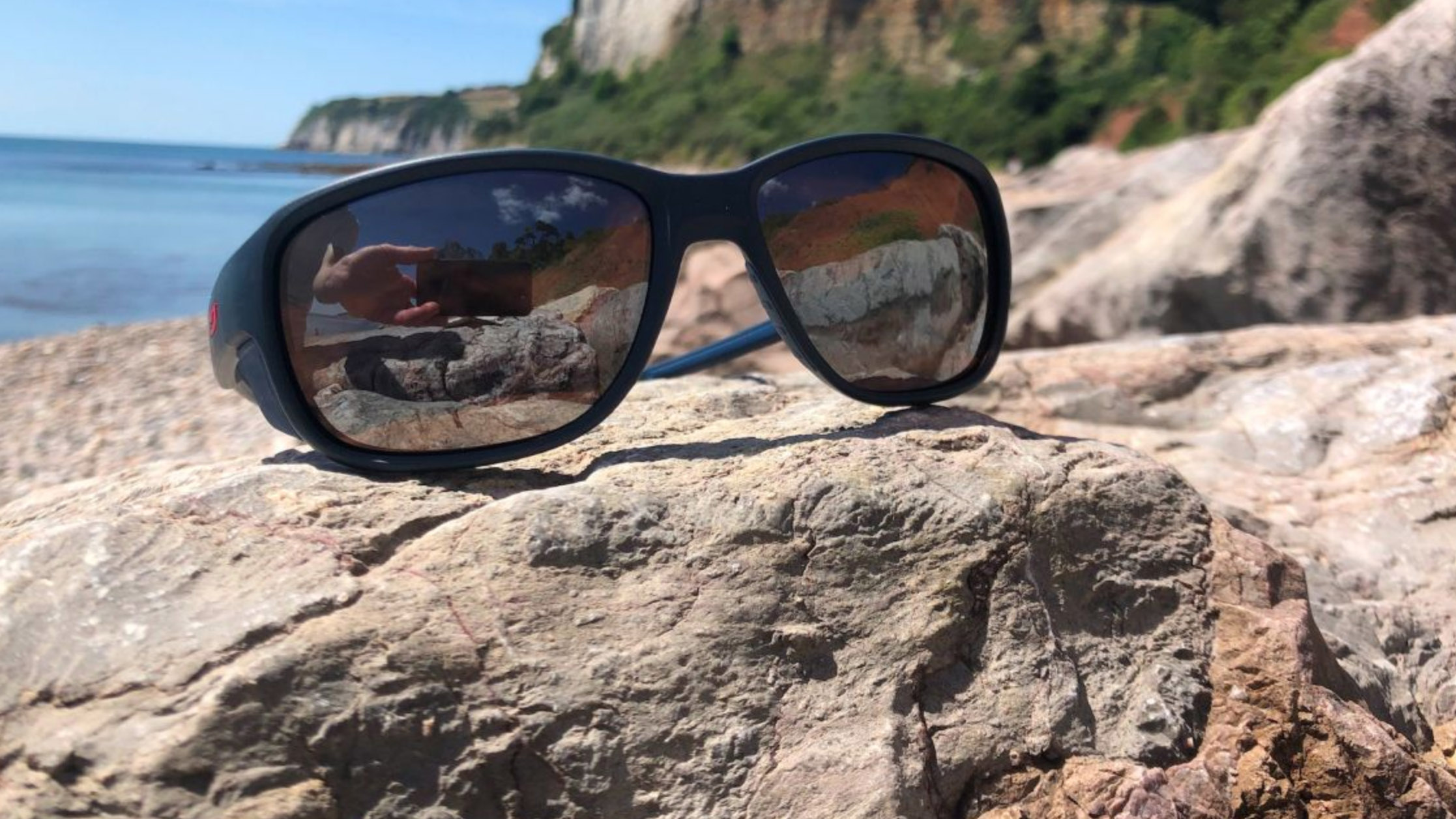
Specifications
Reasons to buy
Reasons to avoid
The classy looking Montebianco 2s are lightweight, hardwearing sunglasses for use on mountain trails, whether you’re running or hiking. On test, we found the fit was extremely comfortable, no matter how long we wore them, and the low-profile, shock-absorbing nose-grip was non-invasive and invisible to the wearer. They feature subtle, but very effective side glare shields, which are easy to remove when not required and equally simple to put back on.
The Montebianco 2’s frame is flexible and robust, and can "put up with a bit of rough-and-tough trail treatment" according to our expert tester. It withstands getting knocked around in a backpack or pockets – just make sure you protect the lenses with the material pouch that comes with the glasses.
There are three choices of lens quality: the standard, non-polarised Spectron 3 lenses are the cheapest, and are perfectly adequate for adventures on open terrain; the Spectron 3 polarized lenses reduce more glare and offer better definition when you’re looking at water and skyscapes; while the considerably more expensive Reactiv Polarized glare-control lenses are photochromic, dynamically adapting to the light conditions wherever you’re running and providing optimum visual performance.
Read our full Julbo Montebianco 2 / Monterosa 2 running sunglasses review
The best trail running sunglasses for moisture management
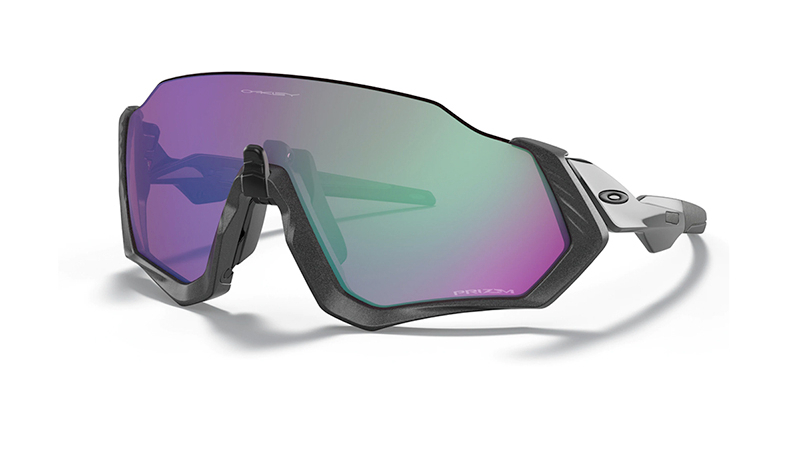
5. Oakley Flight Jacket
Our expert review:
Specifications
Reasons to buy
Reasons to avoid
One of the keys to a pair of the best trail running sunglasses is simply being able to see the terrain below you and the features around you. The lenses of the aerodynamic Flight Jacket model have a large surface area and an open-edge brow to optimize a wide scope of vision. The nose bridge and ear pieces were specially designed to allow maximize air flow and reduce fogging during high-intensity, high-sweat activities on warm days. On test, we found they did exactly this, no matter the level of exertion.
The Flight Jacket comes with numerous different frame colors and three styles of high-impact protective lens options — Prizm, Prizm Polarized and Photochromatic — that can adapt to ever-changing light conditions. It’s hard to beat the performance and style of the Flight Jacket.
It’s built for high-performance running and cycling and our expert tester confirmed that "it’s one of the best of the bunch". Whether you want to invest a big chunk of money is perhaps something you’ll have to put up for debate. You definitely get what you pay for, and that’s a top-tier pair of shades that won’t let you down.
The best trail running sunglasses for brand aftercare
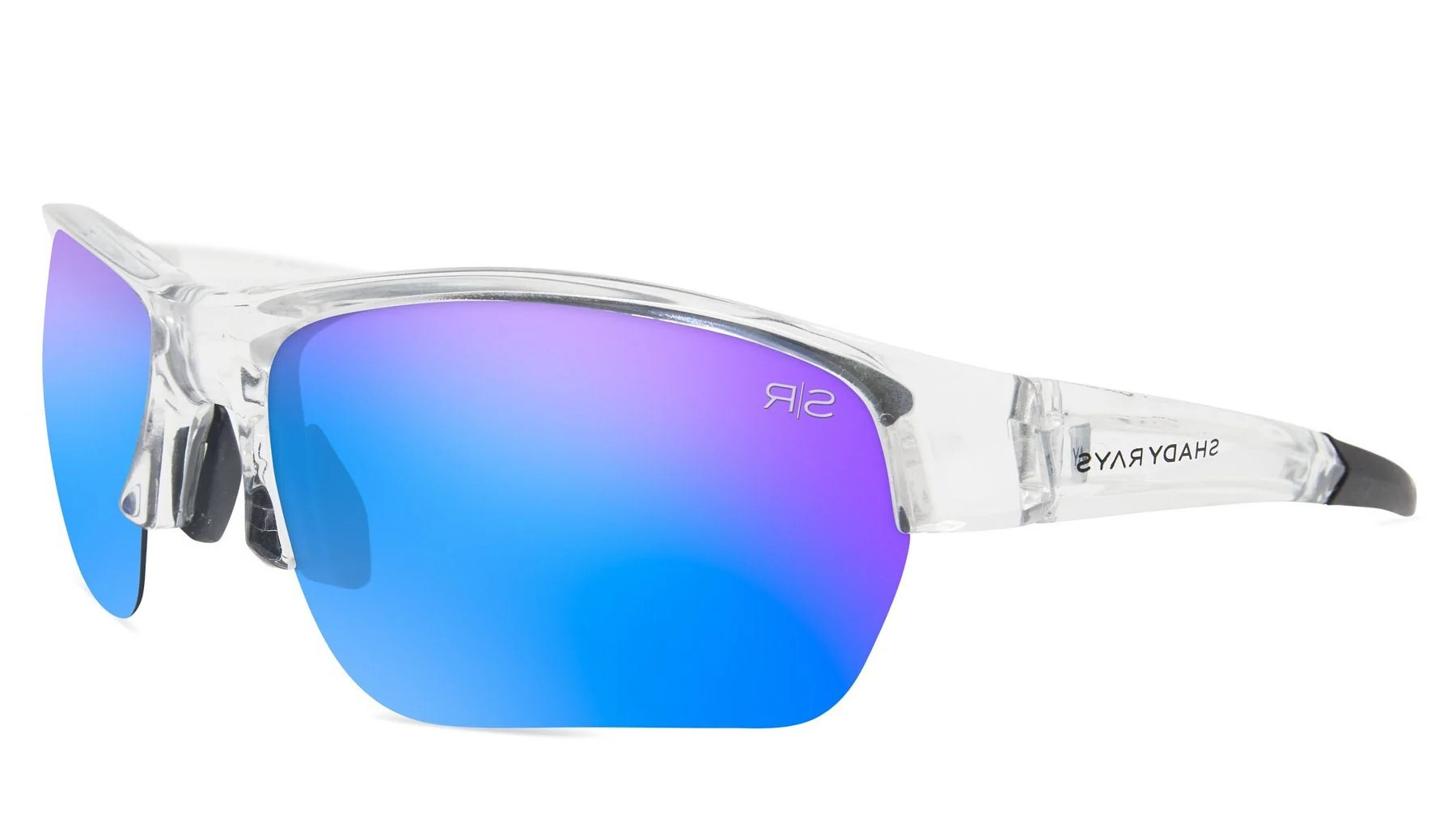
6. Shady Rays Velocity
Our expert review:
Specifications
Reasons to buy
Reasons to avoid
Built for fast-action sports, the Velocity sunglasses move with you as you’re bobbing up and down during a trail run, shield the sun and, on test, we found they didn't inhibit our field of vision. The premium ice blue mirror lenses are polarized, shatter-resistant, anti-reflective and offer 100 percent UV protection. The flexing temples and rubberized nose pads keep these shades in place, while the rimless bottom provides an unobstructed view of obstacles and debris on the trail. Intended for a small-medium fit, "the Velocity sunglasses look as good as they perform" according to our expert.
Shady Rays burst on the scene as an Internet startup brand offering affordable sunglasses. Those kinds of brands are plentiful but most are hawking cheap, disposable glasses. The difference is that the quality, performance and style of Shady Rays sunglasses, which are on par with much more expensive models. Shady Rays will even replace your shades if you break them.
The best trail running sunglasses with an urban aesthetic
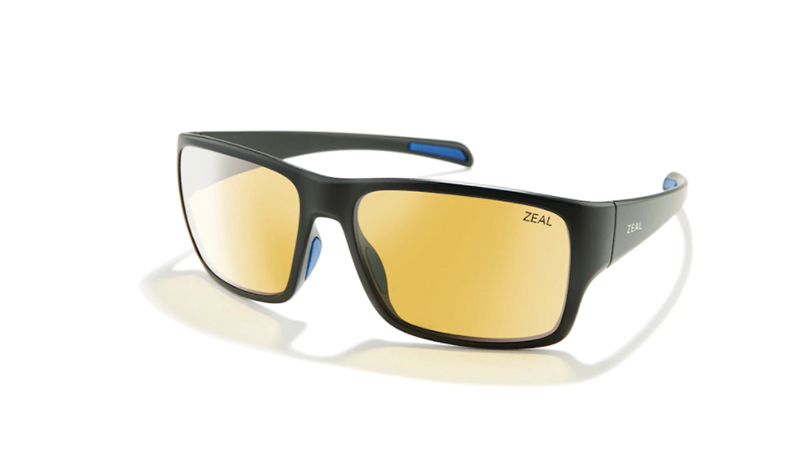
7. Zeal Optics Manitou
Our expert review:
Specifications
Reasons to buy
Reasons to avoid
The small town of Manitou Springs, Colorado, is tucked between the sprawling city of Colorado Springs and the purple mountain majesty of Pikes Peak. It’s a trail running mecca and the place where we tested the Colorado-made Manitou shades. There’s no place better than experience Zeal’s AutoSun lens technology – which combines with photochromatic variable light capabilities and polarized protection – "ideal for long mountain runs full of partly sunny and partly cloudy moments" according to our expert.
The superlight frames are made from an eco-friendly bio-resin that’s as durable as plastic but much better for the environment. And the best feature might be one of the smallest: the grip pads at the tips of the frame actually get tackier when they get wet from sweat or rain
There’s high value and performance packed into the Manitou, and yes, the price tag is higher than some other polarized shades. But they feature best-in-class optics and are versatile enough to wear trail running, mountain biking or an afternoon relaxing at the pub after a day of high-velocity adventures.
The best trail running sunglasses for aesthetics
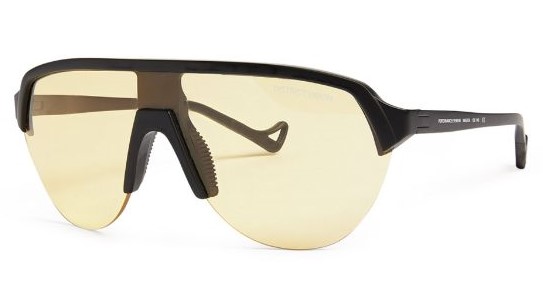
8. District Vision Nagata Speed Blade
Our expert review:
Specifications
Reasons to buy
Reasons to avoid
Although the Nagata Speed Blade was wear-tested on the streets of New York City, it was designed with distinctive Japanese style and engineering. District Vision says it was developed using the methodology of Kaizen, the Japanese philosophy of continuous improvement. It’s clear from the sophisticated design, with a bottomless, retro-styled frame and advanced lens technology that a lot of meticulous effort went into the design of the Speed Blade.
But perhaps equally as notable was the wear-testing done by hundreds of New York City runners who tried out prototypes in all kidns of weather, light and running conditions, because as cool and stylish as they look, these shades are also "one of the best performing models we tested out on the trails" says our expert tester. The temple tips are made with titanium cores and titanium screws with uniquely styled turned up tips, making it as light and comfortable as possible without sacrificing strength of structure.
On test, we found wind and sweat were no issue. However, it’s the high-transmission, low-glare D+ Sports YellowLens that we found most appealing. District Vision says it’s constructed from a proprietary form of shatterproof polycarbonate with anti-reflective coating on the interior and an exterior treatment for to make it water- and oil-repellant. Is the price tag hefty for a pair of shades? For most of us, yes, it certainly is. But we think this is the cream of the crop.
The best photochromatic trail running sunglasses
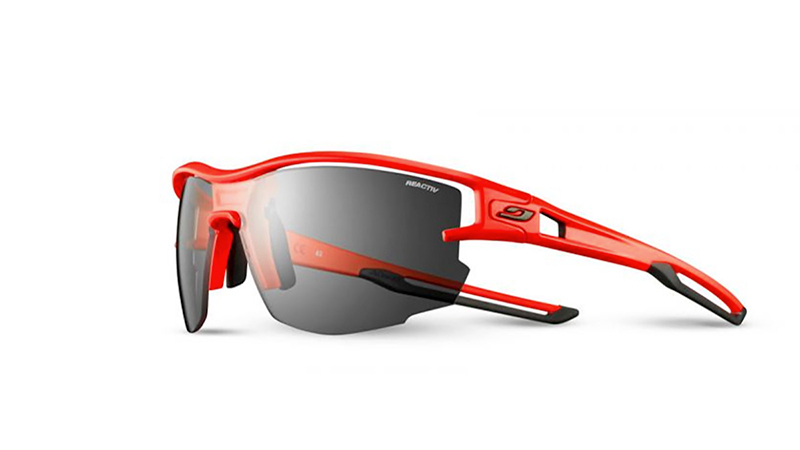
9. Julbo Aero
Our expert review:
Specifications
Reasons to buy
Reasons to avoid
The Aero is a super-light pair of high-performance shades with a dynamic photochromatic lens technology that can adapt to low-light or bright conditions, which we found makes them especially good for trail running when it is continually changing from sunny to cloudy to shady.
The unique frame design with a singular suspended polycarbonate Spectron 3CF lens allows for a comfortable fit, exceptional visual clarity and optimal ventilation. The flexible, vented ends of the temples feature a soft, elastomer material that keeps the glasses in place with comfort and a bit of stylish flair.
Considering a pair of Aero glasses is a classic case of cost versus benefit. Will your trail running benefit from investing a little bit more in a pair of shades? Absolutely. On test, we found the photochromatic lens technology was exceptional and ideal for running in variable weather conditions, running in the mountains, running near the coast and, really, as our expert put it: "running anywhere".
The best trail running sunglasses for close-to-the-face design
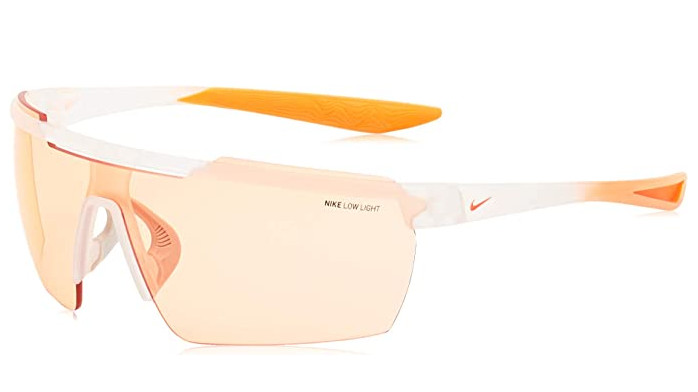
10. Nike Windshield Elite
Our expert review:
Specifications
Reasons to buy
Reasons to avoid
When you’re moving fast and running all-out, you need your gear to become a part of you. That’s especially true when you’re trail running, because even the slightest distraction can lead to a head-over-heels tumble. The Nike Windshield Elite feature a sleek, close-to-the-face design and a wide, one-piece, wraparound lens that ultimately disappears once you put them on. They offer top-quality optics.
On test, our reviewer found they "gave a full range of vision and all of the comfort and functionality we could need in high-performance situations". The unique design adds ventilation both above the nose bridge and on the top of the frame to help reduce fogging. The floating nose pad helps optimize airflow and absorb impact, while cushioned rubber temple tips add grip and provide long-wearing comfort. For all of those reasons, the Windshield Elite are ideal for race-day efforts and fast workouts.
The best trail running sunglasses for large face profiles
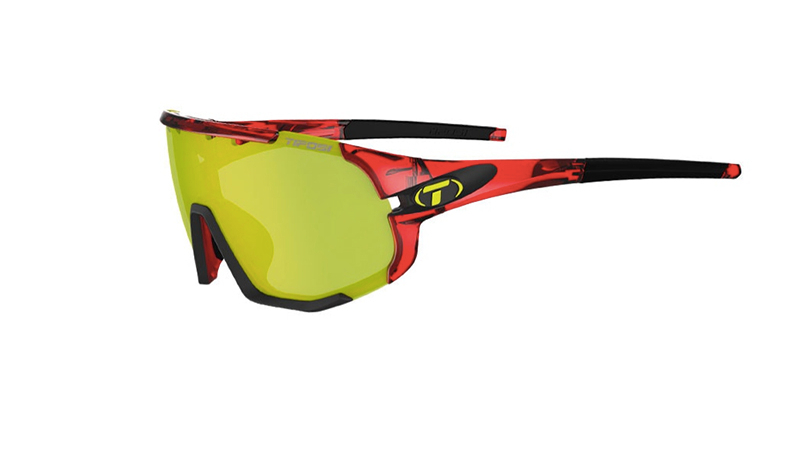
11. Tifosi Sledge
Specifications
Reasons to buy
Reasons to avoid
Tifosi has always been known for no-frills, functional, sport-specific sunglasses, but the Sledge is so much more than that. They’re elite-level performance shades with smart design features and an affordable price tag. The curvy frame design hugs around the shape of many medium to large face profiles – however it’s not quite as optimal for trail runners with smaller faces – and the oversized lens give a maximal field of vision. The distortion-free vented lenses are made from a scratch-resistant, shatterproof polycarbonate with an anti-glare coating.
On test, we found that the durable nylon frames were extremely bendable under pressure and have limited edges to maximize the optics and hydrophilic rubber on the tips to grip during high-sweat activities. Sledge shades have a cool look and high-performance features, that "combine fit, functionality and optics," according to our tester.
The best trail running sunglasses comparison table
Trail running sunglasses | RRP | Polarized | Gender |
Dynafit Ultra Evo Sunglasses | $149.95 (US) / £130 (UK) / €150 (EU) | No | Unisex |
Oakley SubZero | $244 (US) / £201 (UK) | No – but Prism lenses offer excellent definition | Unisex |
Adidas SP0057 Sport Sunglasses | $227(US) / £117 (UK) / €150 (EU) | Mirror / Polarized / Photocromatic | Unisex |
Julbo Montebianco 2 / Monterosa 2 | With Spectron 3 lenses: $99.95 (US) /£94.95 (UK); with Spectron 3 Polarized lenses: $119.95 (US) / £114.95 (UK); with Reactiv 2–4 Polarized glare-control lenses: $229.95 (US) / £184.95 (UK) | Optional | Unisex |
Oakley Flight Jacket | $226 (US) / £187 (UK) | No but available with Prizm Polarized lens option | Unisex |
Shady Rays Velocity | $64 (US) | Yes | Unisex |
Zeal Optics Manitou | $229 (US) / £180 (UK) | Yes | Unisex |
District Vision Nagata Speed Blade | $249 (US) /£219 (UK) | No | Unisex |
Julbo Aero | $130 (US) £66 (UK) / €100 (EU) | No | Unisex |
Nike Windshield Elite | $169 (US) / £145 (UK) | No | Unisex |
Tifosi Sledge | $80 (US) / £80 (UK) | No | Unisex |
How we test the best trail running sunglasses
To test these sunglasses, we ran repeatedly with each pair on rough trails and smooth roads, across open sun-blazed hillsides and through woods, where the sunlight was dappled and changeable.
Meet the testers
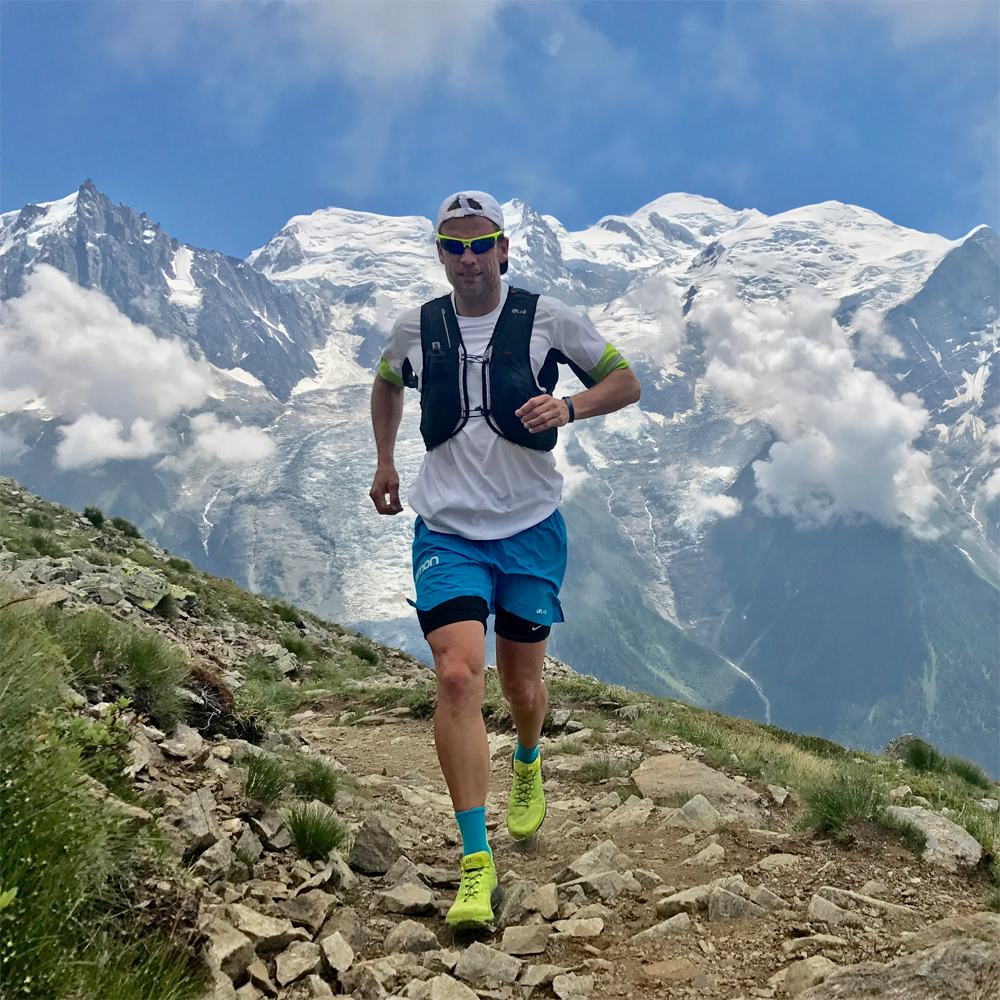
Based in Boulder Colorado, Brian is a lover of big outdoor adventures and the longer and crazier the run, the better. He's completed four Ironman triathlons, as well as numerous marathons and ultra-distance running races in both the States and Europe.
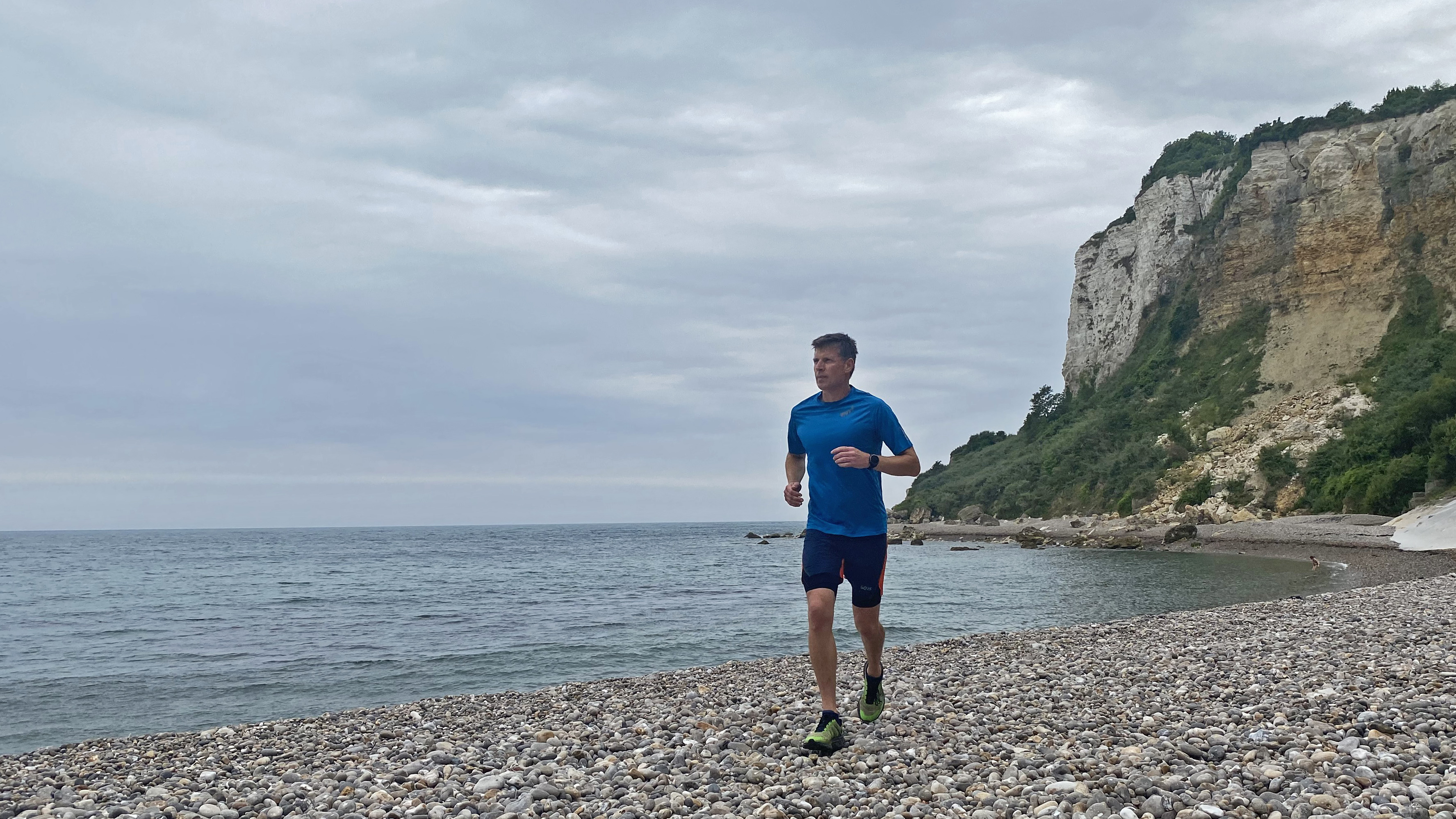
Our consulting editor Pat is one of our top gear experts. He lives in sunny Devon in England's south and often takes to the coastal trails or heads on a run inland to explore the East Devon Area of Outstanding Natural Beauty. He once set (short-lived) speed records on Australia's highest peaks and New Zealand's great walks.

Based in Vali, Colorado, Kim loves nothing more than exploring the surrounding mountains. When snow covered, she takes to the piste and when it melts, she runs the trails. She's an expert when it comes to outdoor gear and has tested many pairs of running shades and ski goggles in her time.
What to look for in the best trail running sunglasses
There are several important things to consider when choosing the best trail running sunglasses. We recommend thinking hard about the following factors.
How should trail running sunglasses fit?
As with trail running shoes and the clothes you wear, the size of a pair of shades and how a particular model fit on your face and head are crucial to a good experience and optimal performance. Like snowflakes, no two pairs are identical. It’s important to try glasses on, if possible, to understand how the frame size, shape and curvature covers your face but also how the nose pads, temples (or arms) and temple tips interact with the specific size and shape of your head, both in a static position but also while you’re running. One key factor to consider is how far the lenses are from your eyes, while it’s also smart to understand how the temple pieces interact with running hats you typically wear.
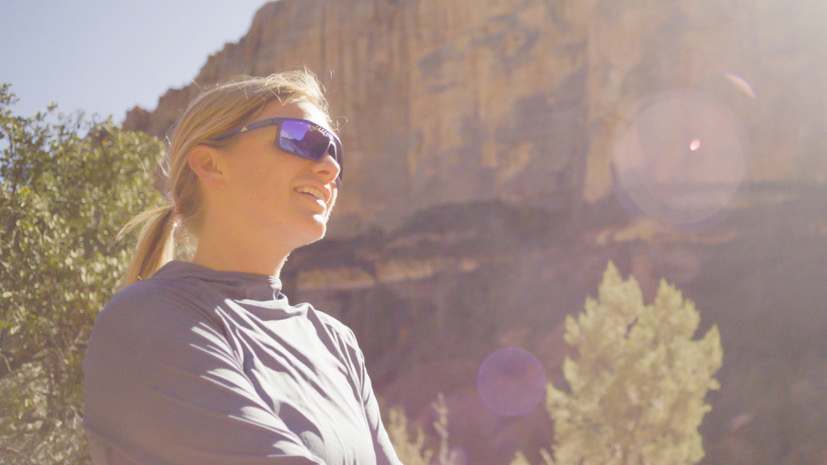
What should I look for in a pair of running sunglasses optics?
Not all lenses are equal. In fact, the performance of some shades might be greatly superior to others relative to the type of conditions you’ll be running in. While most lenses provide UVA A and UVA B protection, not all lenses offer the glare-reduction of polarization. If you’re trail running in the mountains or seashore where you’re adjacent to snow or water, you’ll want to consider buying a pair of sunglasses with polarized lenses. When it comes to the admission of light, you can consider tints and coatings that make your view appear darker or lighter, but the best-case scenario for trail runners might be a photochromatic lens that adapts to sunny and cloudy conditions. The base curve or arc of the frames can be a factor to consider, but it can often be hard to find. The base curve number tells you how far the frame will curve out. A 6-base curve is considered standard and will fit flatter on your face, while a base curve of 8 will have more curve and wrap around your face.
Can I get prescription running sunglasses?
If you need or want to replace the lenses in your sunglasses with prescription lenses, you should consider this from the start. It’s easier with some brands than it is with others based on the shape and interchangeability of the lenses. Most brands will have information about which models are best for prescription lenses on their websites. You can work with your local optometrist or find an online service or sales site to meet your needs.
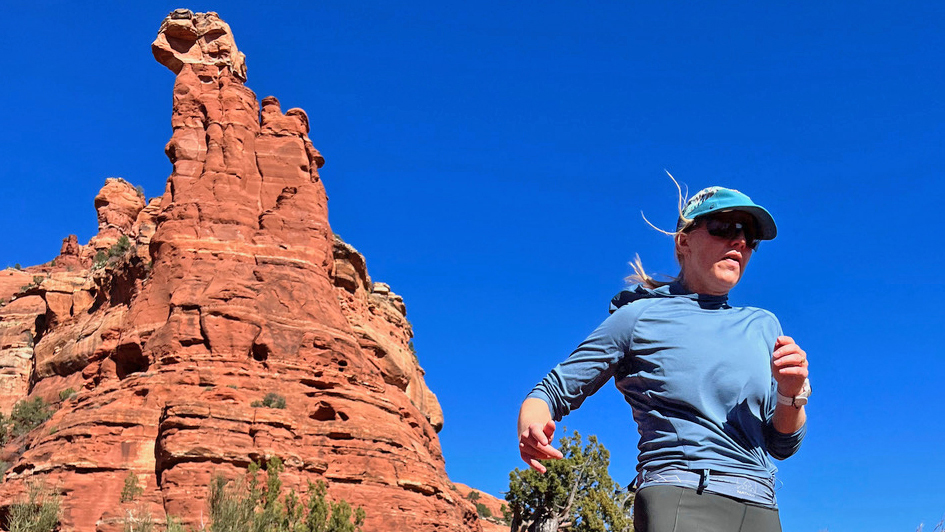
Does frame color matter in a pair of trail running sunglasses?
In theory, frame color and lens color shouldn’t matter when you're looking for the best trail running sunglasses, at least in terms of a performance-oriented point of view. But we know that shades are an accessory that carry a bit of vanity in how we wear them. Keep in mind, those sunglasses provide you the protection and performance you’ll need while trail running, but they’ll also appear in race photos and the images you (or others) post on social media. Does that mean they have to match your trail running ensemble? No, but if you’re not particularly keen on how they look when you buy them, you might not like them later on when you’re tagged in a post. Performance is crucial, but to some trail runners with discriminating tastes the look and appearance might be a close second.
How much should trail running sunglasses cost?
The cost of a pair of sunglasses could be the big or small priority when you’re buying a new pair of shades. In one sense, you definitely get what you pair for, but the price is also relative to how you care for your sunglasses. Generally speaking, higher-priced sunglasses from bigger, more well-known brands have good quality lenses, smart features and appealing aesthetics. But they also have a lot of marketing budget built into the price. On the contrary, there are a lot of good (even if more basic) sunglasses available from smaller, start-up brands offered at seemingly incomprehensibly low prices. Some of those are actually quite good, some are complete rubbish, so if you’re shopping on a limited budget for the best trail running sunglasses, you really have to be discerning about the features and quality.
How much should trail running sunglasses weigh?
The weight of the sunglasses typically doesn’t matter too much, except sometimes when they’re too light. It’s typically difficult even to find the weight of a pair of shades as most brands don’t include it in the specs they publish online or on point-of-sale hang tags. Generally speaking, most sunglasses fall in the range of 0.75 ounces (21.5g) and 1.5 ounces (43g) and the difference is barely noticeable unless you’re trying them on in a side-by-side comparison. Typically the shades on the heavier end wind up providing a more secure fit while you’re running, but the super-light frames can sometimes be awkwardly willowy, especially when you’re running fast in hot, sweaty conditions.
Advnture Newsletter
All the latest inspiration, tips and guides to help you plan your next Advnture!
Brian is an award-winning journalist, photographer and podcaster who has written for Runner’s World, The Times, Outside, Men’s Journal, Trail Runner, Triathlete and Red Bulletin. He's also the author of several books, including Kicksology: The Hype, Science, Culture and Cool of Running Shoes. He lives in Boulder, Colorado, and loves to run, bike, hike, camp, ski and climb mountains. He has wear-tested more than 1,500 pairs of running shoes, completed four Ironman triathlons, as well as numerous marathons and ultra-distance running races.
- Kim FullerAdvnture contributor
- Pat KinsellaAdvnture Consulting Editor
- Alex Foxfield
